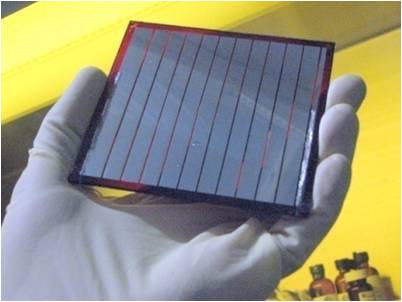An international research team led by the University of Cambridge, in the United Kingdom, claims to have prevented charge recombination under open-circuit conditions in organic solar cells based on non-fullerene acceptors (NFAs), which are the most powerful organic PV devices ever developed to date, with efficiencies exceeding 18% in some cases.
Non-radiative charge recombination is a major loss process in most organic solar cells based on NFAs, that occurs when a hole and electron that originate from the same photon recombine before separating into free charges. “As there is a stronger attraction between the electron and hole in carbon-based materials than in silicon, organic solar cells are more prone to recombination, which in turn affects their efficiency,” the scientists explained. “This necessitates the use of two components to stop the electron and hole from recombining rapidly: An electron ‘donor’ material and an electron ‘acceptor’ material.”
The academics claim that, through spectroscopy and computer modelling, they were able to see how the majority of charge recombination under open-circuit conditions proceeded via the formation of non-emissive NFA triplet excitons, which are quasi-particles that carry energy but no charge. In order to prevent recombination into triplet excitons from occurring, they engineered strong molecular interactions between the electron donor and electron acceptor materials, which made it possible to keep the electron and hole further apart.
“Modelling suggests that the rate of back charge transfer from spin-triplet charge-transfer excitons to molecular triplet excitons may be reduced by an order of magnitude, enabling re-dissociation of the spin-triplet charge-transfer exciton,” the researchers stated, referring to the molecular tuning of the donor and acceptor materials. “The fact that we can use the interactions between components in a solar cell to turn off the triplet exciton loss pathway was really surprising,” added researcher Alexander Gillett. “Our method shows how you can manipulate molecules to stop recombination from happening.”
Popular content
The group said its research showed a pathway to develop new materials which block recombination into triplet excitons and have the potential to make organic solar cells achieve efficiency of over 20%, thus approaching those of non-organic PV.
The findings of the research can be found in the paper The role of charge recombination to triplet excitons in organic solar cells, which was recently published in nature. The research team also comprises scientists from Oxford University, the Université de Mons, in Belgium, the University of California, Santa Barbara, in the U.S., and Linköping University, in Sweden.
This content is protected by copyright and may not be reused. If you want to cooperate with us and would like to reuse some of our content, please contact: editors@pv-magazine.com.



2 comments
By submitting this form you agree to pv magazine using your data for the purposes of publishing your comment.
Your personal data will only be disclosed or otherwise transmitted to third parties for the purposes of spam filtering or if this is necessary for technical maintenance of the website. Any other transfer to third parties will not take place unless this is justified on the basis of applicable data protection regulations or if pv magazine is legally obliged to do so.
You may revoke this consent at any time with effect for the future, in which case your personal data will be deleted immediately. Otherwise, your data will be deleted if pv magazine has processed your request or the purpose of data storage is fulfilled.
Further information on data privacy can be found in our Data Protection Policy.